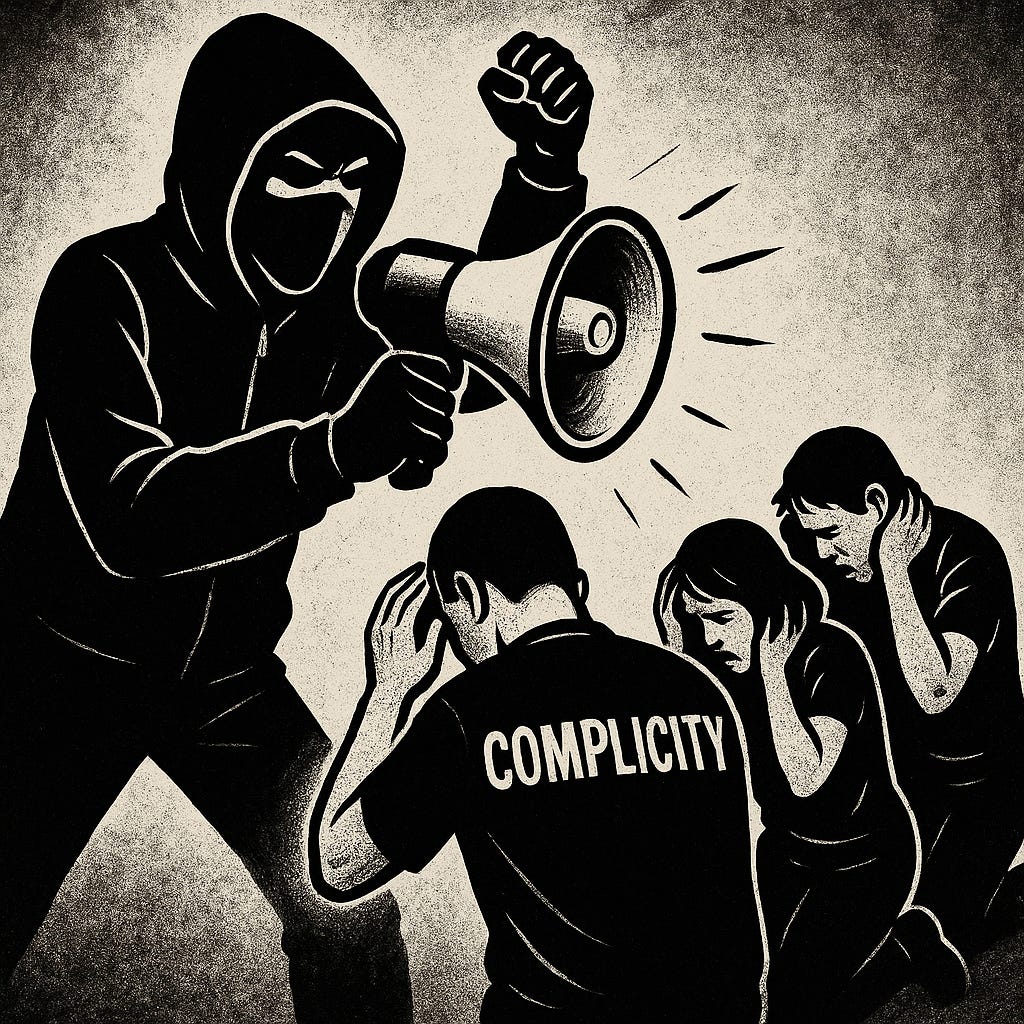When Good Intentions Alienate: The Unintended Consequences of Anti-Racist Zeal
What if trying to fight racism made it worse?
I know how that sounds. But hear me out. Hate crimes in the U.S. have surged over the past 15 years, targeting Black people, Jews, LGBTQ folks, Arabs, Latinos, pretty much every protected group you can name. The same pattern shows up in Canada, despite our reputation for being nice…and boring. There are obviously multiple causes, but I can't shake the feeling that our shift toward aggressive anti-racism messaging might be one of them.
And this isn’t just me being anti-woke. I got into social psychology specifically to reduce prejudice. My dissertation was about the educational experiences of marginalized groups. I created and taught a course called the Psychology of Prejudice for nearly 15 years. But research I conducted over a decade ago suggests that coercive approaches to fighting bias can backfire.
Traditional approaches to fighting racism focusing on non-discrimination and colorblind ideals gave way to something more vocal and aggressive. The new anti-racism framework demanded active participation. It wasn't enough to avoid being prejudiced; you had to actively dismantle bias to create more equitable outcomes. Fair enough: systemic racism is real and persistent.
But then something changed. I found myself increasingly at odds with the modern anti-racism movement. The tenor of the movement became more aggressive, less tolerant. Some of the methods used to reduce prejudice relied heavily on public accountability and social pressure, creating approaches that felt coercive while leaving little room for grace.
That's when the movement lost me. And if it can lose someone who spent 15 years teaching about prejudice, imagine how normies react.
How could they lose me? Research I conducted over a decade ago, with my former students Lisa Legault and Jennifer Gutsell, now both tenured professors, offers clues. Back in 2011, we published a paper on prejudice reduction. Our goal was to see if we could reduce bias by working with people's intrinsic motivations rather than against them.
We created two different pamphlets framed as part of a new campus initiative. The intrinsic motivation pamphlet encouraged participants to see the personal value of diversity, emphasizing choice and explaining why prejudice reduction was important and worthwhile for them personally. The extrinsic motivation pamphlet used the language of prejudice-reduction that was common on campus in the late 2000s. It urged participants to “combat prejudice” and comply with social requirements to control stereotypical impulses, using terms like “erase racism” and “stop prejudice.” We also had a third group that received no pamphlet at all, our control group. We measured participants' anti-Black attitudes, which captured subtle modern prejudices like believing anti-Black prejudice is over-exaggerated or that Black people are demanding too much.
We predicted that the intrinsic messages would work better than the controlling approach, which we expected would still reduce prejudice more than doing nothing. What we found surprised us.
Yes, the intrinsic messages reduced prejudice compared to the control group. But what really stood out was that the pamphlet with the then-current anti-prejudice messages—the more coercive approach—actually increased prejudice compared to doing nothing at all.
We didn't believe the results at first, so we ran a second study and replicated the same pattern: positive effects for the intrinsic approach, but a clear backfiring effect for what we might now recognize (by today’s standards) as mild anti-racism messaging. As far as I know no one has replicated this work, and samples are small as was the custom in pre-replication crisis social psychology; so treat these results as provisional. Nonetheless, when looking back now, I think we accidentally discovered something interesting, man.
Fast forward to 2020, when anti-racism became a dominant framework for addressing racial inequality. At its core, anti-racism makes arguments rooted in the work of scholars like Ibram X. Kendi and Robin DiAngelo. As Kendi argues, “One either allows racial inequities to persevere, as a racist, or confronts racial inequities, as an antiracist.” In this view, passive non-discrimination isn't enough. The framework requires a commitment to actively fighting racism; if someone chooses the path of non-prejudice or non-racism, they are unwittingly supporting passive racism.
The core insights behind anti-racism have real merit. It is true that racism is embedded in institutions and policies. It is also true that seemingly neutral practices can inadvertently maintain inequalities. These are important observations.
But…
The movement often adopted tactics that felt more coercive than persuasive. The message became clear: If you're not actively fighting racism, you are racist and any hesitation to embrace the framework makes you part of the problem. This approach manifested in mandatory corporate diversity training and diversity statements, public shaming for even simple mistakes or misunderstandings, and attempts to get people fired or not hired for opinions that went counter to the anti-racist approach.
This is exactly the kind of controlling, coercive messaging that our research showed can backfire. And more applied research confirms our surprising findings. Sociologists Frank Dobbin and Alexandra Kalev discuss how people often respond to mandatory diversity programs with anger and resistance, with many participants reporting more racist attitudes, not less. Diversity training is especially ineffective when it requires mandatory participation. This makes sense: when you tell people they have no choice but to think a certain way, people push back.
Want to see this dynamic in action? Let me tell you what happened to a colleague of mine when she gave a talk at a major psychology conference. This incident perfectly captures how anti-racist vigilance can spiral into something destructive and perhaps even undermine support for prejudice reduction more broadly.
What happened to her is both infuriating and instructive. It involves Bernie Sanders, Kanye West, a single complaint, and administrators who chose public shaming over private resolution. It's the kind of insider academic drama that illustrates what’s wrong with how we're approaching prejudice reduction today.



